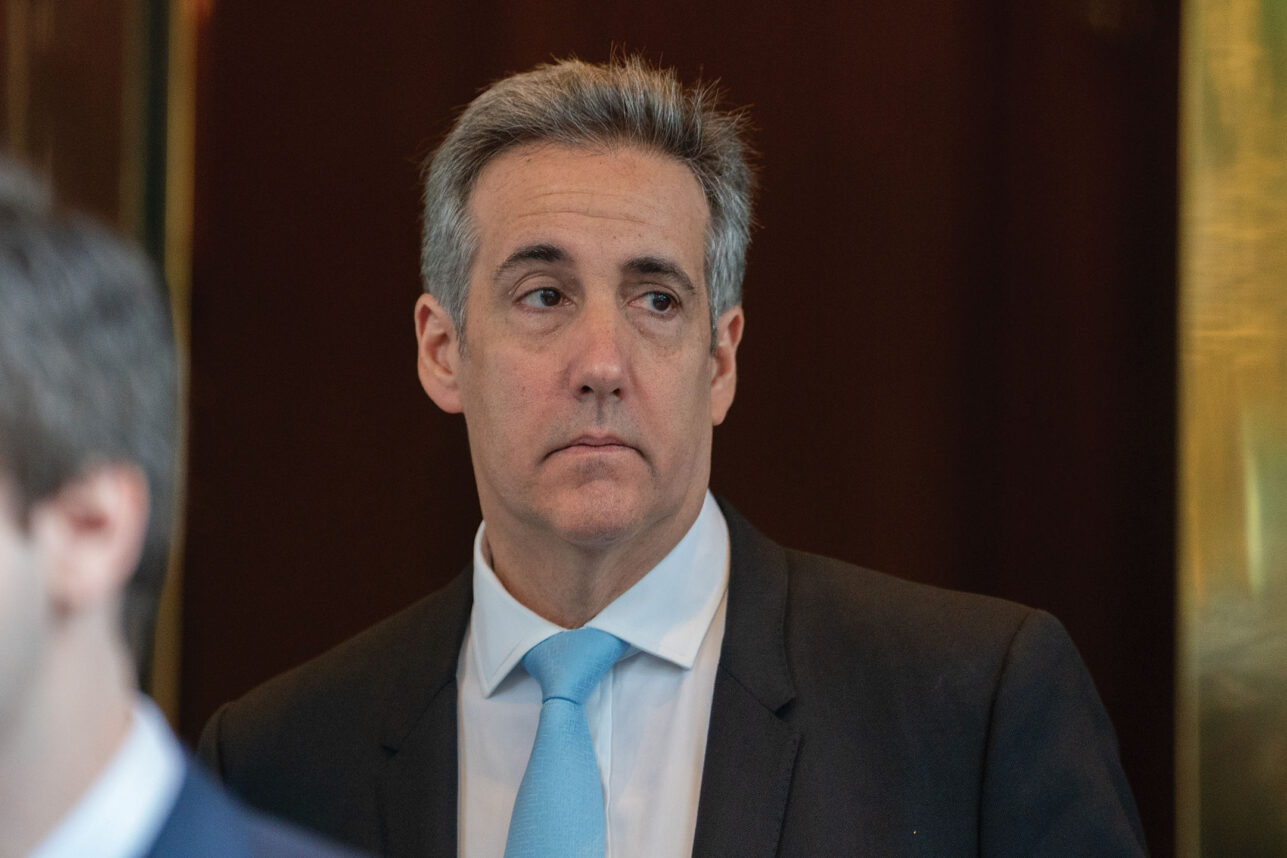In the black-and-white opening of “Forgiveness,” a small, frightened girl runs through a foggy forest as dogs bark ominously in the distance.
In the next scene, in color, a fashionably dressed American woman visits a cemetery and stops before a tombstone with a Star of David inscribed with the name Esther Horn Blumenfeld.
What is the connection? The viewer has to be patient, for “Forgiveness” is like a complex jigsaw puzzle or murder mystery in which apparently disconnected pieces fall into place only gradually.
In contrast to the other 45 presentations at the current Polish Film Festival, “Forgiveness” is in English with an American cast and set in a contemporary American city. However, the director and storywriter is Poland’s Mariusz Kotowski, and the film’s mood is shaped by memories of wartime Poland.
For all who have been looking for a movie dominated by strong, independent women, this is the one to see. The two men present are defined only by their relationships — one supportive, the other unfaithful — to the women.
The story line is both complex and easily spoiled by hints to the future viewer. In broad strokes, the chief protagonists are two professional women, Sara (Sydney Barrosse), a tall, blonde architect, and Maria (Shelly Calene-Black), a petite brunette academic and radio-show counselor.
Though they appear successful (Sara’s apartment, especially, looks like something straight out of Vogue), they are each haunted by their pasts, or, rather, their respective mother’s past.
Maria’s mother is Catholic and lives, perpetually disgruntled, in a retirement home. Sara’s mother was Jewish and died recently. Both mothers lived in Poland during World War II, then immigrated to the United States, but never talked to their daughters about their childhood experiences during the Nazi occupation and the Holocaust.
Sara has discovered a diary left behind by her mother, is distraught by what she finds, and wanders into a lecture given by Maria, which explores the themes of coping with the death of a loved one and forgiveness.
That’s as far as we can go here, but though the film has a compelling plot line, its real strength lies in weaving the relationships among its female characters.
The trailer
A bond between two adult, self-confident women has rarely been portrayed as effectively, but it is the hate-love relationship between Maria and her mother (Julie Erickson in a heart-wrenching performance) that gives the film its powerful emotional impact.
The Polish Film Festival, now in its ninth year, is a labor of love and dedication by Vladek Juszkiewicz, of Polish birth, who has made it his mission to introduce the films of his native land to American audiences.
This year, he has taken a major leap forward by offering 18 feature movies, 11 animated films, 11 documentaries and six live mini-plays.
He has also expanded the venues from the main one at Laemmle’s Sunset 5 Theatre in West Hollywood, to the Egyptian Theatre in Hollywood, UCLA, San Pedro and Santa Ana.
Customarily, Juszkiewicz includes some Jewish-themed films, partly because, according to his estimates, there are some 5,000 Polish-speaking Jews in the Los Angeles area, many of whom left Poland during the stormy years of 1956 and 1968, in addition to some 150,000-200,000 Polish Catholics.
Inevitably, many of the films deal, in one way or another, with the Holocaust era, but, said Juszkiewicz, the themes go beyond the extermination of Poland’s Jews.
“Anything that deals with Polish society or Polish history touches on the relationship between the country’s Catholics and Jews,” he said.
This year, besides “Forgiveness,” there are seven features and documentaries of special Jewish interest. These include “The Eagle Pharmacy,” about a pharmacist, the only Pole residing in the Warsaw ghetto, and “Unforgettable Past,” which portrays four elderly Polish Jews in Israel, recalling their youthful years.
The additional films are “English Lesson,” “Tomorrow We’re Going to the Movies,” “Doctor Halina,” “The Credenza” and “Conversations With an Executioner.”
The Polish Film festival runs from April 25-May 4, preceded Thursday evening (April 24) by an opening night gala. The world premiere of “Forgiveness” screens at 3 p.m., April 26, at the Sunset 5 Theatre. For more information, call (818) 982-8827.























 More news and opinions than at a Shabbat dinner, right in your inbox.
More news and opinions than at a Shabbat dinner, right in your inbox.